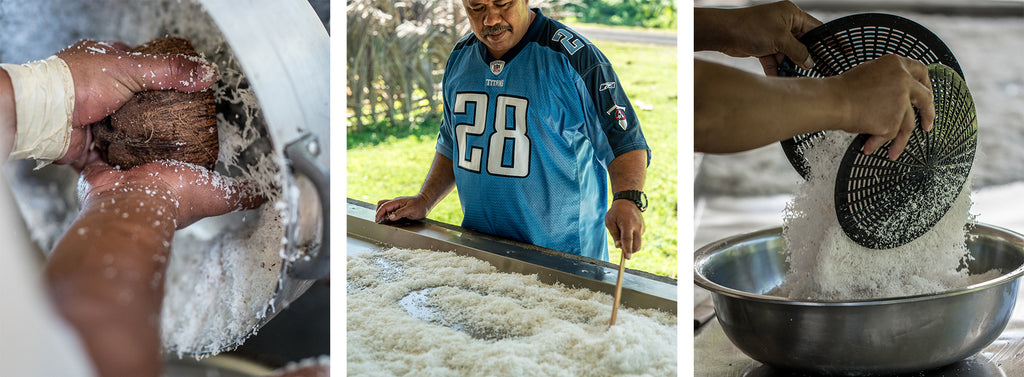How fair prices make a difference to you, small farmers and the world
If you were to sum up what fair trade is about in one word, unsurprisingly it’s ‘fairness’. It’s giving local growers in developing countries stable prices and good working conditions like we all expect.
It’s also about being fair to the local environment too. In developing countries, when people are desperate to feed their families, the environment and sustainability rarely get a look in. With fair wages, people are more likely to make decisions for the long term. The Fairtrade organisation goes further than that by encouraging waste minimisation, putting all raw resources to good use, and ensuring low-to-no environmental harm in the processing.
Why fair trading brings the goods
By buying fairly traded products, you’re voting with your wallet, supporting ethical and sustainable practices. The money you spend goes straight to companies that invest in people and the environment – and pushes other companies to follow suit. Buying fairly traded goods means that you:
- Strengthen small communities
The products you buy supports small producers and family businesses in developing countries. That means families can count on their income, so they can plan for the future, hire locals and send their kids to school.
- Support developing economies
The knock-on effects happen at a national level, too – better access to healthcare, decent nutrition and education means the developing country as a whole is healthier and better educated.
- Help the environment
Fair trading also often extends to ensuring sustainability of production – and that’s good for the environment, too.
- Empower and encourage entrepreneurship
Those growers are supported to learn new skills, expand their businesses, adapt and innovate.
- Help women
According to the United Nations, women are about 43% of the agricultural workforce, producing 60-80% of the world’s food supply. They only own 10-20% of the land. Even when they do own land, it’s smaller lots and they earn less from it. Fairly traded products give more women opportunities to earn from their labour. For example, in Samoa, Women in Business (the source of our coconut oil) empowers women, giving them control over their lives, so they can plan for their and their daughter’s futures.
Fairtrade certification vs. fair trading guidelines
The Fairtrade organisation is focussed on improving conditions for people producing raw ingredients. They also certify final products. For a fee, and an ongoing premium, the certified company can use the Fairtrade logo on their packs, telling consumers that what they’re buying has been rigorously checked. We’re not Fairtrade certified, but many of our ingredients are. More still are fairly traded – while they don’t carry the certification, we’ve seen (sometimes first hand!), how the workers are being treated, how the profits are shared, and how the environment is cared for. For example, all Ethique’s coconut oil is produced by families all over beautiful Samoa.

Women in Business have helped set up these coconut farms, by working with the families, teaching them processes, helping buy the equipment and offering ongoing support. These are inter-generational businesses – coconut palms take six to ten years to start fruiting and at least 15 to reach peak production.
We use a lot of coconut oil – it’s in all of our products for its light, moisturising properties. Because we use this fairly trade coconut oil, we can replace palm oil in our products, without shifting the environmental damage to somewhere else.
Similarly, our cocoa butter comes from CONACADO cooperative in the Dominican Republic – the same ones TradeAid work with.
Our babassu oil – the perfect, light moisturiser – comes from babassu nuts, which are wild harvested in Brazil, giving pickers a valuable seasonal income. Most of these pickers are women and work under Plantus, a collective. This organisation pays a price per kilo for the harvest, then also distributes a share of the profits.
How to spot fairly traded products
While anyone can say their products are fair trade, there are no rules about what that really means, and what, therefore companies are allowed to put on their packs.
If making ethical buying decisions is important to you, it’s good to look into the care that companies put into sourcing their ingredients. This will let you see that you’re supporting local growers with a fair income, and also enhances their community. You’ll know that the local environment is being taken care of too.
That’s right up our alley. Everything that goes into the making of our products has got to be a force for good. Not just delicious to use, and kind on your skin, but good for the soul, too.
Credit Ethique

